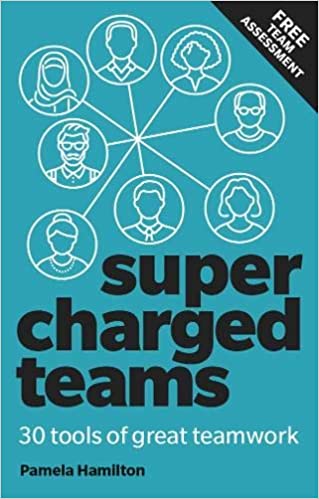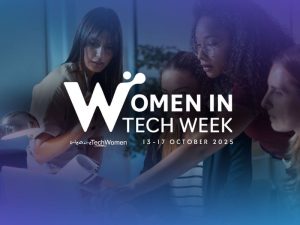
On the older side, work keeps us connected, stimulated and learning, and for this reason many older people are choosing to keep working later in life, beyond the traditional retirement age of 60.
For others, working later is not a choice – if you can’t afford to retire, you have to keep working. On the younger side, there are more opportunities for internships and apprenticeships now, bringing younger employees in to learn on the job earlier. These demographics combine to give us the first four generational workforce in working history, starting with Gen z, Millennials, Gen X and Boomers.
People born from 1995 to 2010 – true digital natives: from earliest youth, they have been exposed to the internet, to social networks, and to mobile systems.
People born from mid-1960s and the early-1980s – members of this group are approaching the middle of their working careers and potential peak-earning year
Like any culture clash, intergenerational working is bound to throw up some issues. Gen X have long stereotyped millennials as being entitled, Millennials assume older colleagues are unable to grasp technology, and Gen Z enter the workforce ready to take all their colleagues to task on ethical issues.
To prevent conflict and enhance the benefits of intergenerational working, we need to help people to value the complementary skills each brings to the table, rather than allowing their differences to become more entrenched. More than ever we need to enable different generations at work to understand and appreciate each other’s strengths, and agree to work better together to make the most of the different generations on the team.
Research shows that diversity of any sort makes teams perform better, and an intergenerational workforce can bring real strengths. Older team members have valuable life experience and advice to give, and younger team members bring digital native skills and raise awareness of important issues like environmental impact and unconscious bias to the benefit of everyone.
However, different generations are bound to bring different beliefs and behaviours to work. When we come from different backgrounds, we may not agree on the right ways of working well together, or even interpret each other’s behaviours in the right way. Building a positive culture in an intergenerational team requires deliberate and open discussion.
Every age diverse team needs to consciously decide how they want to create a positive working culture, with agreed rules of engagement that suit the individuals in that team.
When you deliberately discuss your rules of engagement, you may find that the Millennial in the team doesn’t want to be the team’s IT support person all the time, or you may ask the Boomers to stop getting so upset about misuse of apostrophes, so long as communication is clear and professional otherwise.
In a world where we (quite rightly) look more towards recruiting, developing and supporting younger team members, let’s not forget that we also need to keep supporting all ages in their work experience. We have a duty to our older employees as well as our younger ones, to make sure all the generations at work benefit from the sharing of skills and experience, and bring the variety of perspectives that make for better decision-making.
Age diversity is going to become increasingly more important and more visible in future, so let’s give ourselves the permission to openly talk about how we want to work together better, to make sure we benefit from all the generations we have at work.
 About the author
About the authorPam Hamilton is the author of Supercharged Teams: 30 Tools of Great Teamwork which contains specific tools for you to use to set out your email etiquette, agree rules of engagement, and build your trust and teamship. Take her free team assessment to rate the performance of your team and find out which chapters and tools will best suit you.
Great teamwork is crucial for any high performing team, but being in a team is harder than ever before. Work is faster, leaner and more digital, and teamwork can be last on our list of priorities.
Supercharged Teams will boost the way your team works together, whether you lead a team or belong to one.
With 30 powerful tools for teamwork, supercharge your team to:
Supercharged Teams gives you the power to supercharge your team, today

October
13/10/2025 - 17/10/2025 (All Day)(GMT+00:00)
The ground-breaking nationwide celebration of women in technology returns, featuring a week of dynamic online and
 The ground-breaking nationwide celebration of women in technology returns, featuring a week of dynamic online and in-person events. Focused on career growth, networking, and innovation, this event continues to champion equality and empower women in the tech industry.
The ground-breaking nationwide celebration of women in technology returns, featuring a week of dynamic online and in-person events. Focused on career growth, networking, and innovation, this event continues to champion equality and empower women in the tech industry.
WeAreTechWomen is proud to present the second annual UK Women in Tech Week, taking place from October 13th to 17th, once again aligning with Ada Lovelace Day. This nationwide initiative brings together a vibrant line-up of virtual and in-person events celebrating the impact of women across the tech industry.
In partnership with leading organisations and Women in Tech networks, the week will offer inspiring panels, practical workshops, and meaningful networking opportunities. Through our website, attendees can easily book their spots for these events. Our master calendar for bookings will be released in the summer. Those who have registered their interest will receive priority booking.
Despite growing awareness, the sector still faces systemic challenges. Our upcoming Lovelace Report with Oliver Wyman has highlighted a number of issues around the broken systems that hinder the progression of women in the tech industry. Several reports over the past few years, including the Lovelace Report, cite that women are leaving the industry altogether. This talent drain is not only a loss of potential but is actively costing the UK economy billions of pounds each year.
With just 20% of the UK’s tech workforce made up of women—and with government commitments to scale the AI workforce—this is not the time to slow down. It’s time to step up.
For more information visit: women-in-tech-week.com
01nov09:0016:30KIN: Know. Inspire. Navigate | A Day for Women to Realign, Renew, and Rise
01/11/2025 09:00 - 16:30(GMT+00:00)
Henley Business School, Greenlands
Henley-on-Thames, RG9 3AU
Set on the tranquil banks of the River Thames, Henley’s historic Greenlands campus offers the perfect backdrop for a day of reflection, connection, and
Designed for early to mid-career women across industries who want practical tools they can use immediately, this one-day retreat follows the Kinspace KIN framework – Know, Inspire, Navigate – guiding you to:
This is not just a feel-good day. It’s sustainable learning – you will leave with your own action and implementation plan tailored to your life, so you can apply what you’ve learned immediately and keep building momentum long after the retreat.
In the afternoon, slow down and reconnect with your senses in a mindful pressed flower card crafting, writing to self and picture workshop. We’ll ask a few questions ahead of time so we can pair you by goals and stage, and tailor examples to your context. Then, step outdoors for a unique partner reflection in nature – partnering with both the landscape and each other to inspire deeper insight and grounded action.
To help you stay accountable and supported, you’ll have the option to join three monthly follow-up group sessions (at a separate price) designed to check in on your progress, troubleshoot challenges, and keep you moving towards your goals.
This is a confidential and supportive space with limited seats to ensure meaningful connection and participation.
Date: Saturday 1 November 2025
Time: 9:00 AM -4:30 PMT
Location: Henley Business School, Greenlands Henley-on-Thames
RG9 3AU
Price: £250 – Early Bird £200 until 10 September
